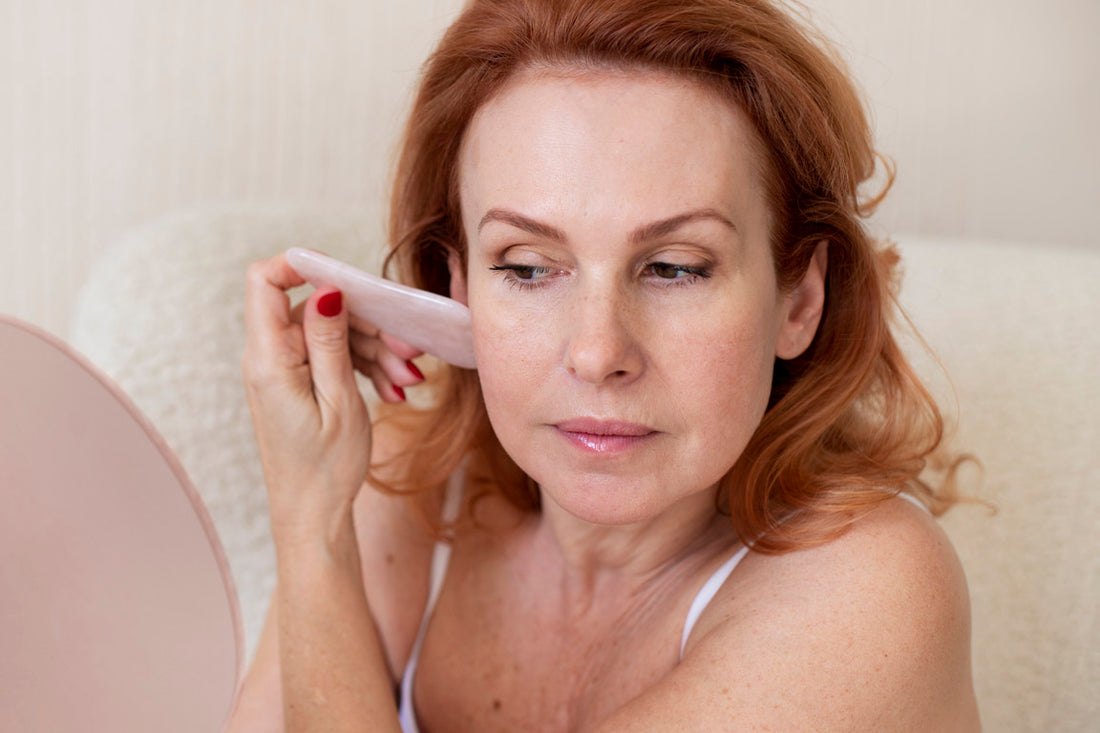The Science Behind Aging Skin and How To Combat It

Caring for our skin has been a part of human existence for thousands of years and will continue for many years to come. Over the years, human skin has been continuously studied, especially as it starts showing the effects of aging.
In the pursuit of trying to combat aging signs, skincare specialists and scientists have discovered ingredients and developed skincare products that actively slow down and combat aging skin.
Read this guide on how to combat aging skin. It will teach more about the science of aging skin and the advanced treatments you can try to maintain healthy, youthful skin.
The Science Behind Aging Skin: The Aging Process
As we mature, our skin undergoes several functional and structural changes as part of the aging process. It is important to know that these changes are a natural part of life.
The first change in your skin is the outer layer known as the epidermis. As skin begins to age, this layer loses its elasticity and becomes thinner. Next, collagen and elastin fibers in the dermis decrease, resulting in wrinkles and sagging skin. Lastly, the skin will begin to struggle to retain its moisture and start to dry out frequently.
Natural aging will influence these changes, but there are some instances where environmental factors, lifestyle, and genetics trigger the aging process.
Read more: Everything You Need to Know About Eye Wrinkles
How To Effectively Combat Aging Skin: Antioxidants and Hydration as Anti-Aging Solutions
Now that you know the science behind aging skin, there are two main components you should consider when looking to combat aging skin effectively. These two components can be found in most reputable skincare products, in many different forms, and have been shown to work:
Antioxidants
In our battle against aging skin, antioxidants play a crucial role in neutralizing free radicals, unstable molecules that damage skin cells. Many factors can create free radicals, including UV rays, environmental stressors, and pollution.
To find antioxidants that protect your skin, look for products that have any of the following ingredients:
- Vitamin C: Reduces uneven skin tones, increases collagen production, and promotes glowing skin.
- Vitamin E: Has moisturizing properties and protects your skin from UV damage.
- Green tea extract: Features the same anti-inflammatory and antioxidant benefits as standard green tea when applied to the skin.
- Coenzyme Q10: Creates a glowing complexion and reduces wrinkles by energizing your skin cells.
Read more: Power of Yerba Mate: Transform Your Skincare Routine
Hydration
Hydration is the second component to fight against aging skin. If hydrated regularly enough, your skin will be visibly smoother and more radiant. If you don't hydrate enough, you may find that your skin looks dull, and wrinkles may be more prominent.
To combat this effectively, you will need to find products that use ingredients with high hydration qualities, such as:
- Hyaluronic acid: Found in both synthetic and plant-based extracts. It can retain and attract high quantities of moisture to your skin.
- Glycerin: Draws in water and helps absorb it into the skin for moisturization.
- Ceramides: Helps restore the skin's natural barrier and prevent further moisture loss.
You should also remember that drinking enough water daily and using a humidifier can help your skin stay hydrated.
Read more: How to Get Rid of Dark Circles under Eyes
What Advanced Treatments Can You Try To Combat Aging Skin?
There are more intensive treatments for treating aging skin that have proven to be some of the most effective and long-lasting treatments. If you are looking for intensive treatment options, consider trying the following:
- Retinoids: This derivative of vitamin A helps boost collagen production and cell turnover while reducing the symptoms of aging.
- Chemical peels: Effective for cell regeneration, exfoliation, and improving the skin tone and overall texture.
- Microneedling: Involves creating micro-injuries in your skin to increase and stimulate elastin and collagen production.
- Laser therapy: Usually focuses on specific areas of concern on the skin and promotes skin rejuvenation and collagen production in those areas.
Read more: Skin-Tightening Treatments: What You Need to Know
The Wrap-up on the Science Behind Combating Aging Skin
By studying aging skin, humans have made groundbreaking discoveries on how to delay and combat the effects of aging, such as wrinkles, fine lines, and sagging skin. But you don’t need to undergo extensive invasive procedures to keep your skin healthy.
Simply finding an effective skincare routine with the right products can improve your skin's overall health and reduce the risk of premature aging. The sooner you start with a routine, the better your outcomes in achieving healthy, youthful-looking skin.




